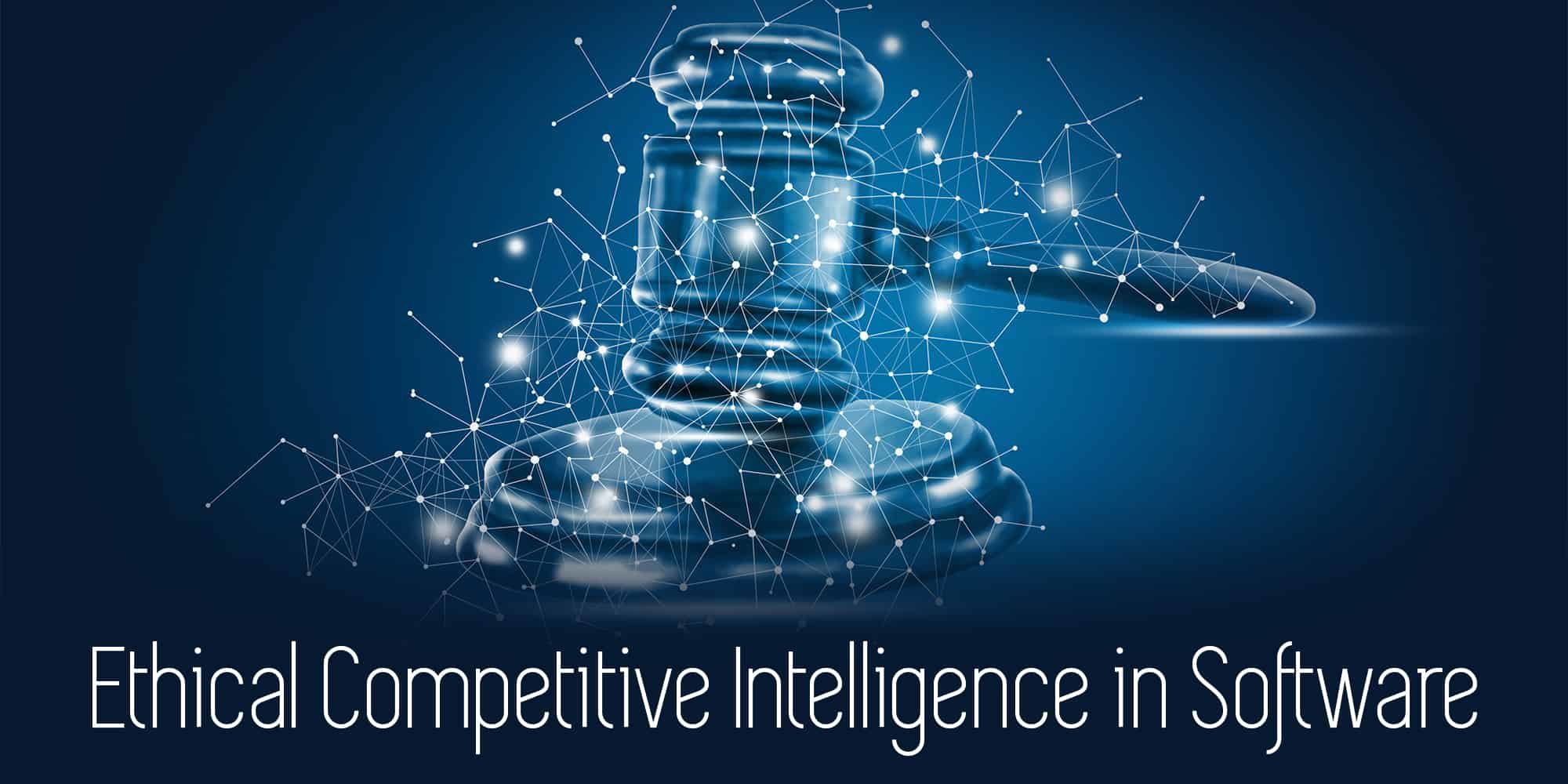A recent court decision in Virginia should serve as a wake-up call to software companies engaging in competitive intelligence gathering.
In May, a jury in Fairfax County, Virginia awarded workflow automation company Appian $2.036 Billion in damages from competitor Pegasystems, Inc. for trade secrets misappropriation.
That’s two billion…with a “B”.
The specifics of the case, which centers on Pegasystems hiring an employee of a government contractor with access to Appian’s software and using that access to improve their own product and competitive position, could make a riveting Netflix series (“The Company Spy”, dropping soon!). But the important takeaway for software company leaders is the need to closely scrutinize their own competitive intelligence efforts for both ethical and legal reasons.
The important differences between unethical and ethical competitive intelligence
When conducted ethically, competitive intelligence (CI) research can be a valuable contributor to product development and pricing strategies. But if done unethically, it becomes corporate or industrial espionage, rife with legal and reputational dangers.
In our eBook, Ethical Competitive Intelligence in Software, we explain the risks and warning signs of unethical CI and how to structure an ethical CI initiative. Here are a few of the key lessons that will not only keep you out of trouble, but yield more reliable and useful competitive insight:
- Unethical CI is the use of intelligence gathering methods that misrepresent who you are and the purpose of an interaction. For example, it would be unethical to call a salesperson at a competitor and try to get information about their volume discounting and net prices by pretending to be a prospective buyer.
- Ethical CI, on the other hand, only uses trustworthy methods to gather competitive intelligence. For instance, when an ethical CI specialist contacts a competitor’s customer or former employee, they clearly state who they are and the purpose of their inquiry.
- The consequences of unethical behavior go beyond legal problems. As workers move from company to company in the software industry, a bad reputation is tough to contain and control. At a time when corporate ethics weigh heavily in the decisions people make about buying from or working for a particular company, that can be a substantial risk.
- Mystery shopping is acceptable when conducted within one’s own organization to evaluate employee performance and adherence to corporate standards, or to better understand and improve customer experience. But once a software company poses as a buyer to competitors or their customers to try to trick them into divulging proprietary and confidential information, they have crossed the line into misrepresentation.
- Ethical CI yields more accurate and reliable insight. Unethical mystery shoppers often get only list prices, inaccurate net prices and a limited perspective on licensing metrics or packaging structures, which probably don’t reflect the reality of what transpires in an extended, multi-step negotiated purchase situation. And without honest conversations with real customers of competitors, aren’t likely to learn how customers use the software, and the attributes that resonated and led them to buy.
- Hiring third-parties to perform CI doesn’t absolve you. If you intend to bring in a consultant to conduct CI, be sure to ask about the training and experience of the people who will be doing the work. Look for a provider certified by the association of Strategic and Competitive Intelligence Professionals (SCIP), whose code of ethics explicitly requires “accurately disclosing all relevant information, including one’s identity and organization, prior to interviews”.
- Industry-wide problems are exacerbated when software companies and consultants partake in unethical CI. Unethical practices create a general lack of transparency and trust and an expectation that you must game the system because everyone else is doing it. This leads to a pervasive distrust in pricing integrity that has buyers spending unnecessary time, effort and money issuing RFPs, software providers jumping through hoops responding to them, and buying decisions pushed to the last minute of the seller’s fiscal year to force discounts.
Avoiding the first step in an unethical journey
It is certainly possible that Pegasystem, and other software companies like them, may not have intended to commit corporate espionage. They may have started with honest and realistic recommendations, and simply taken a small step—like asking a new employee about their prior employer’s pricing model. Which led them to take another step, and another, and so on.
Before long, they have a $2 billion judgment against them. And shareholders demanding a criminal investigation into the executives responsible (read closing argument transcripts here).
For a silver lining, let’s hope this colossal verdict spurs other software executives to confirm the integrity of any competitive intelligence being conducted within or for their companies. We’ll all be better off if that happens.
Want to learn more about ethical competitive intelligence?
Interested in crafting a competitive intelligence strategy, including how to protect your company from being the victim of unethical competitive intelligence? Get our eBook, Ethical Competitive Intelligence in Software, and gain a competitive advantage in such a competitive landscape.
